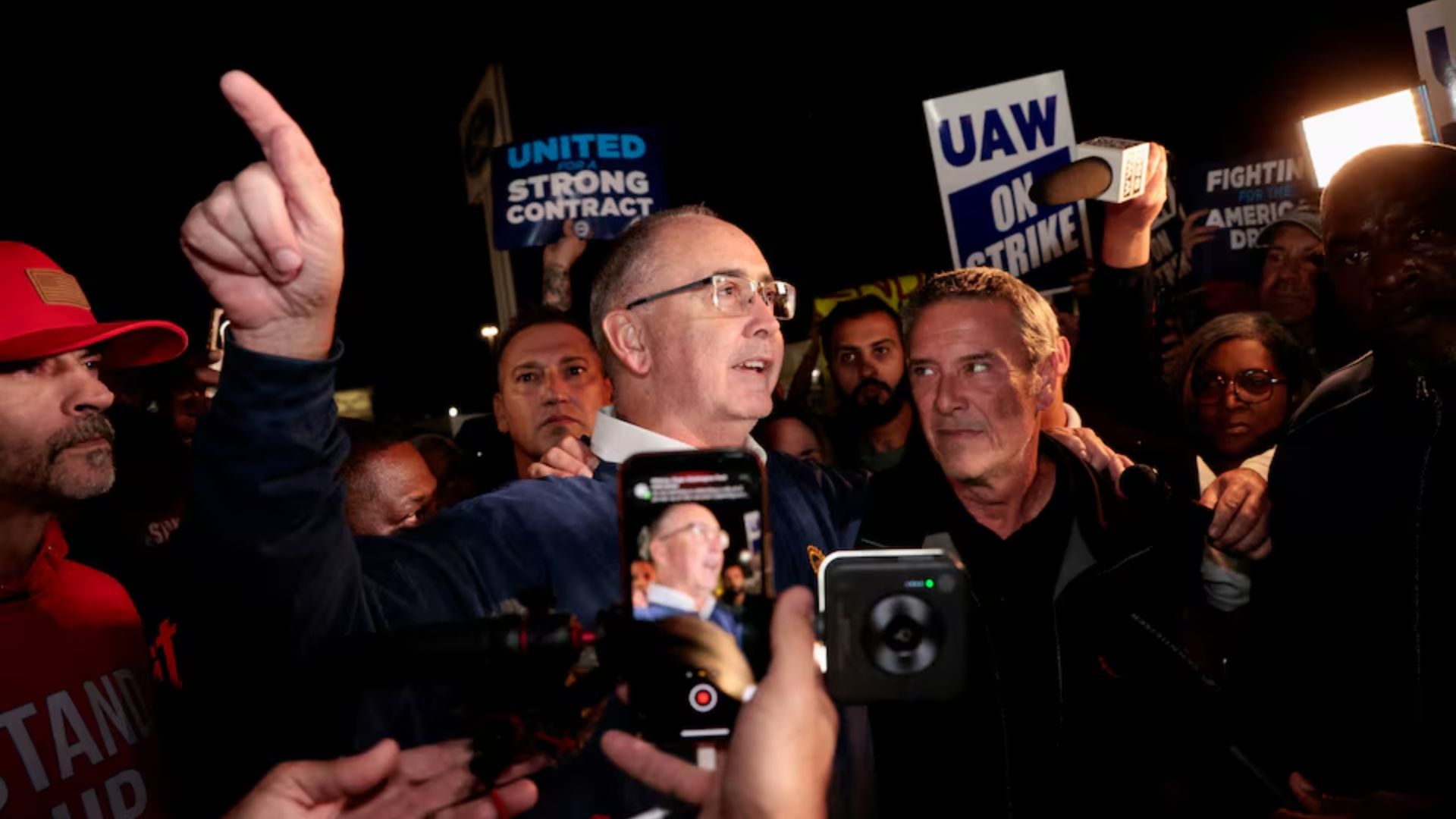Summary
- UAW looks to organize at Ford JV battery plant in the South
- The union had setbacks in the region last year
- BlueOval SK calls the petition “premature”
DETROIT, (Reuters) – The United Auto Workers union is petitioning the National Labor Relations Board to hold an election at a Kentucky battery plant run by a Ford Motor joint venture, the union said in a release Wednesday.
The BlueOval SK plant, owned by a partnership of South Korea’s SK On and Ford, is the latest battery battleground for the union as it seeks to grow its decreasing membership and secure jobs as the industry electrifies.
A representative for BlueOval SK said most workers at the battery facility have not yet been hired, and called the union’s petition “premature.”
“The UAW is trying to rush BlueOval SK into unionization before our full workforce has the opportunity to make a truly free and informed choice,” the statement said.
About 750 workers have been hired in Kentucky, and the joint-venture is expecting to bring on a total of 5,000 workers across two battery plants, the representative said. The first of those battery plants is slated to start production this year.
UAW President Shawn Fain has sought to expand on a historic win last year at a Volkswagen plant in Tennessee. The labor group has not won a significant vote since, suffering a defeat at a Mercedes plant in Alabama in May.
The UAW invested $40 million last year to organize non-union automakers across the U.S., a push that included companies such as Tesla and Toyota.
Battery plants partly owned by Detroit’s automakers were a major sticking point during the union’s six-week strike against Ford, General Motors and Jeep maker Stellantis in late 2023.
The union previously notched victories with Ultium Cells, a joint venture between GM and LG Energy Solution at plants in Ohio and Tennessee.
In June 2024, it reached a tentative contract at an Ohio GM battery plant, and in September, GM agreed to recognize the union at an Ultium plant in Tennessee.
Companies can agree to voluntarily recognize workers once a majority sign cards supporting unionization, which is what happened with the Ultium facility in Tennessee.
In cases where the company does not agree to do this, there is an election, overseen by the NLRB, where workers must vote by majority to unionize.
A union can file a petition for such an election after collecting signatures from at least 30% of workers, according to the NLRB.
The UAW said in November that a “supermajority” of workers at the Kentucky facility had signed cards indicating their support for joining the union, without specifying the percentage.
Some labor experts say it is not surprising that the union is trying to organize the current population of workers at the battery facility instead of waiting for it to expand to its full workforce, given that there have been frequent delays around EV-related plants.
Art Wheaton, labor professor at Cornell University, added that if the union wins this election but future hired workers do not support it, they can always move to decertify the labor group at the facility.
An election date has not yet been set, but it typically takes several weeks between the union filing for an election and it being held.
While the union got support from President Joe Biden – including in person at its picket lines during the strike – Fain president-elect Donald Trump have a more contentious relationship.
The incoming president has said the union leader should be fired, and Fain said before the election that if Trump won, it would be a “complete disaster for the working class.”
Reporting by Nora Eckert, Editing by Nick Zieminski











